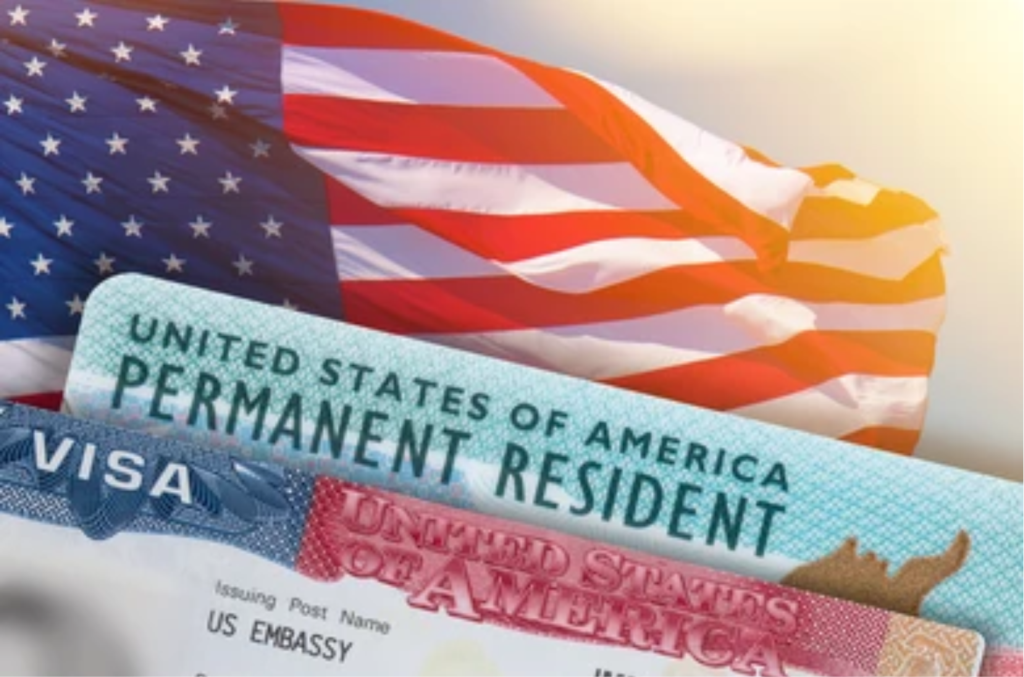
US Immigration Services
Despite the US tightening its immigration policies, the evergreen American Dream still lures thousands of immigrants from across the globe to the US. Access to good job opportunities with attractive pay and respect for the rights of the employees are the major factors that make the United States an attractive place for immigrants. Many others wish to immigrate to the US because they want to ensure a safe and stable future for their children. Quality healthcare and world-class education system are the other major attractions for immigrants when it comes to US immigration.
The United States of America keeps its doors open for deserving immigrants, as they can contribute significantly towards population growth, cultural diversity and economic growth of the country. The US allows immigration of foreign nationals to the country for purposes including family reunification, employment, and capital investment.
Visas for US immigration
Normally, a foreign citizen becomes eligible to apply for a US visa for immigration only if he/she is sponsored by an immediate relative who is a US resident or citizen, or a prospective US employer. They must also have an approved petition before applying for the visa.
Types of visas for US immigration
Family-Based Immigration
Family-Based Immigration visas are of two categories–immediate relatives and family preference.
- Immediate Relative Immigrant Visas
You can apply for visas under this category if you are an immediate relative of a US citizen. Immediate relative visa types include:
- IR-1: Spouse of a US citizen
- IR-2: Unmarried child under 21 years of age of a US citizen
- IR-3: Orphan adopted abroad by a US citizen
- IR-4: Orphan to be adopted in the US by a US citizen
- IR-5: Parent of a US citizen who is at least 21 years old
- Family Preference Immigrant Visas
These visa types are for more distant family members of a US citizen and persons with some specified relationships with a Lawful Permanent Resident (LPR).
Categories under Family Preference visas are:
- Family First Preference (F1): Unmarried sons and daughters of US citizens and their minor children
- Family Second Preference (F2): Spouses, minor children, and unmarried sons and daughters above the age of 21 of LPRs.
- Family Third Preference (F3): Married sons and daughters of US citizens, and their spouses and minor children.
- Family Fourth Preference (F4): Brothers and sisters of US citizens, and their spouses and minor children. The sponsor must be at least 21 years of age.
Fiancé(e) Visa
The Fiancé(e) Visa or K-1 visa is a non-immigrant visa that allows the foreign citizen fiancé(e) of a United States (US) citizen to come to the US and marry his/her sponsor within 90 days of arrival. The visa holder can then apply for converting his/her status to a permanent resident (LPR). In order to obtain this visa, a person must meet certain conditions.
Employment-Based Immigration
Every fiscal year, the US issues around 140,000 employment-based immigrant visas to qualified applicants. Some of these visas allow the candidates to bring their families to the US. Employment-based immigrant visas are divided into five categories:
1. Employment-Based Immigration First Preference Category (E1): Priority Worker
This visa category is divided into three sub-categories:
- Persons of Extraordinary Ability
- Outstanding Professors and Researchers
- Certain Multinational Executives and Managers
2. Employment Second Preference (E2): Professionals Holding Advanced Degrees and Persons of Exceptional Ability
The applicant must have a labor certification approved by the Department of Labor. A job offer is necessary to apply for this visa and the US employer is supposed to file an Immigrant Petition for Alien Worker on behalf of the applicant.
The category has two sub-groups:
- Professionals holding an advanced degree or a baccalaureate degree and at least five years of work experience
- Persons with exceptional ability in the sciences, arts, or business.
3. Employment Third Preference (E3): Skilled Workers, Professionals, and Unskilled Workers
The applicant must have an approved Immigrant Petition for Alien Worker filed by the US employer. Mostly, they also require labor certification approved by the Department of Labor.
4. Employment Fourth Preference (E4): Special Immigrants
A Fourth Preference applicant must be the beneficiary of an approved Petition for Amerasian, Widow(er), or Special Immigrant. They do not need a labor certification.
5. Employment Fifth Preference (E5): Immigrant Investors
Immigrant Investor visa categories are for foreign investors who wish to invest in new commercial enterprises in the United States which leads to job creation.
Returning Resident Visa
A permanent resident (LPR) or conditional resident (CR) who stayed outside the United States for more than one year, or beyond the validity period of a Re-entry Permit, need a new immigrant visa to re-enter to the country and become permanent resident again.

